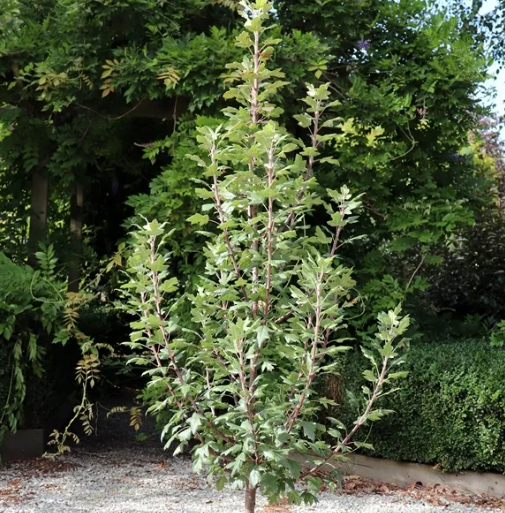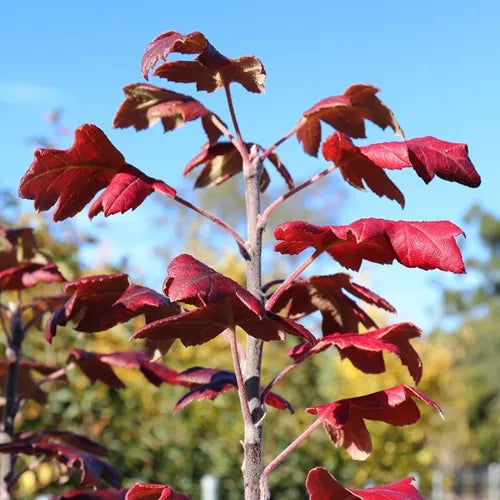Malus trilobata
Malus trilobata
Couldn't load pickup availability
Common Name: Lebanese Wild Apple
Description: Malus trilobata, commonly known as the Lebanese Wild Apple, is a deciduous tree native to the eastern Mediterranean region, including Lebanon, Syria, and Turkey. This species is notable for its upright, pyramidal form, making it an excellent choice for narrow spaces or as a vertical accent in gardens. The deeply lobed, maple-like leaves emerge dark green in spring and maintain their color through summer. In autumn, the foliage transitions to vibrant shades of yellow, orange, and red, providing a stunning seasonal display. In spring, the tree produces clusters of large, fragrant white flowers, which are followed by small, yellow-green fruits that may develop a red flush as they mature. These fruits are not only ornamental but also serve as a food source for wildlife. Malus trilobata thrives in full sun and well-drained soils, demonstrating moderate drought tolerance once established. Its unique foliage and form make it a distinctive addition to landscapes in Melbourne, Australia.
Form:
- Tree - Medium
Mature Size:
- Height: Approximately 6–10 meters
- Width: Approximately 4–5 meters
Aspect:
- Full Sun
Flowering:
- Flowers in Spring
Flower Colour:
- White
Key Attributes:
- Suitable for Pots
- Disease Resistant
- Drought Tolerant
- Attractive Bark
- Autumn Foliage
- Wildlife Attracting
Toxicity: No known toxicity to humans or animals.
Companion Plants:
- Lavender (Lavandula spp.)
- Salvia (Salvia spp.)
- Russian Sage (Perovskia atriplicifolia)
- Coneflower (Echinacea spp.)
- Daylily (Hemerocallis spp.)
For more information and photos of this species, Warners Nursery has detailed information available to the public via the following link.


Enter Your Postcode Below & Click 'Check' To See Delivery cost To Your Area
- Choosing a selection results in a full page refresh.
- Opens in a new window.


